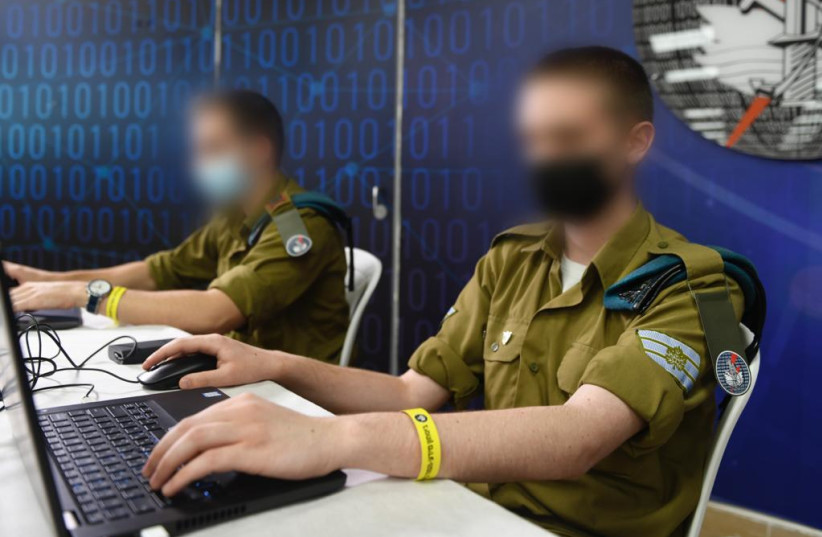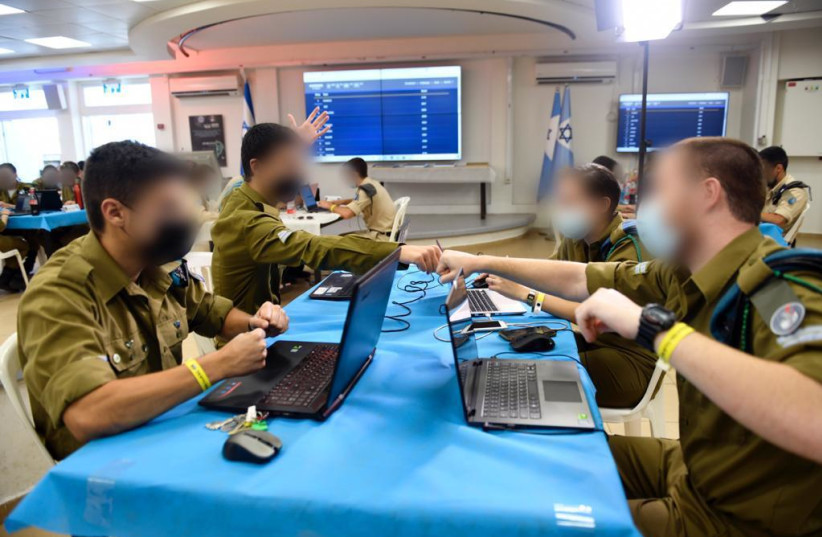For the second year in a row, IDF troops from the Joint Cyber Defense Division (JCDD) have taken part in an international Capture the Flag (CTF) cyber tournament.
Hosted by US Army Cyber, 45 Israeli troops from the JCDD division split into nine teams took part in the multinational exercise, along with another 300 troops from over 10 countries comprising 40 teams, including from Brazil, Canada, France, Germany, Japan, Taiwan’s and the United States.
“This was a great way to train our people in a new environment that they are not used to, and take their skills and test them in a new environment,” said Lt.-Col. O, a senior officer in the JCDD. “It’s four to five hours where your mind is tested in the most extreme way to find new challenges.”
The JCDD, said Lt.-Col. O, is responsible for screening, recruiting, training, and deploying cyber specialists across the IDF, be it the Air Force, Navy, or Ground Forces.
“We give them tools, knowledge, experience and are responsible for their military careers,” he said, adding that taking part in the tournament “was our way to present our cyber core. These are top of the art IDF cyber experts, both men and women from all services. They wore different colored uniforms and berets, but they all spoke the same language.”

The drill was all about time, with the teams having to find both the problem and the solution before the other teams beat them.
It was like “an advanced arcade arena where people want to score a lot of points in a short amount of time,” the senior officer said. “They kept seeing many locks, and they had to find the right lock to open the right door and then invent the right key to open that door.
“We wanted to show our strengths. We all understood it was a tournament. It was about thinking outside the box and coming up with solutions.”

And though “everyone was aware that Israel is a strong cyber power with a strong sophisticated military technology,” it wasn’t the IDF that came in first – that was a country from Asia. Israel came in second.
With cyber threats increasing against Israel on an almost daily basis, troops from the JCDD have been working to monitor, identify, thwart and mitigate them. It is also responsible for the construction and defense of IDF architecture and networks against cyber threats.
While it is not the responsibility of the army to protect civilian networks from such attacks, the IDF will intervene to help if requested.
“If the Iranians tomorrow morning attack Israel’s grid, the IDF is not responsible to work on the civilian cyber domain but at the same time the military must support the national assignment,” he said, pointing to the fires in the last week in the Jerusalem Hills, where an Air Force Super Hercules took part in the firefighting effort.

Troops in the JCDD “have the ability to see the anomaly in this unique picture,” Lt.-Col.O said. “They have the ability to understand why 0101010 and know that this 1 is in the wrong place. They have the skills of the programmer, cyber developer. They need to know if it’s a malicious attack or a mistake. The ones who have the ability to research and understand Iran’s cyber – that’s the IDF.”
